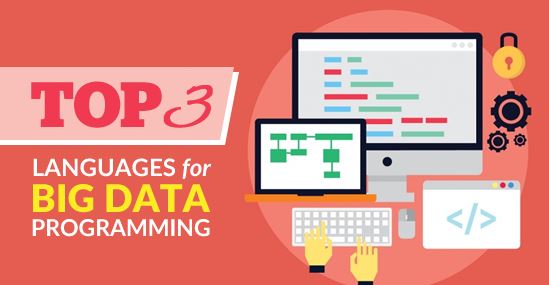
What is Big Data?
Big data is a term that describes the large volume of data – both structured and unstructured – that inundates a business on a day-to-day basis. But it’s not the amount of data that’s important. Big data can be analyzed for insights that lead to better decisions and strategic business moves.
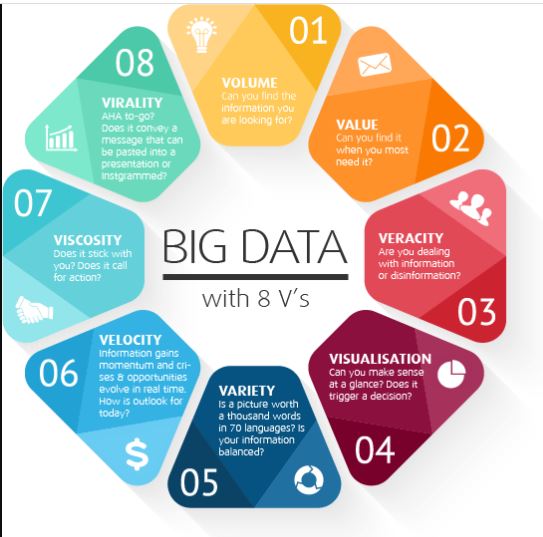
There are many, many programming languages today used for a variety of purposes, but the four most prominent you’ll see when it comes to big data are:
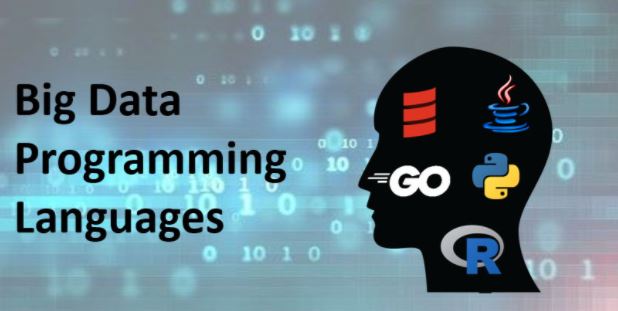
Programming Languages in Bigdata
- Scala
- Python
- Java
- Ruby
What is SQL?
SQL is a domain-specific language used in programming and designed for managing data held in a relational database management system, or for stream processing in a relational data stream management system. SQL Databases are vertically scalable – this means that they can only be scaled by enhancing the horse power of the implementation hardware, thereby making it a costly deal for processing large batches of data.
Database SQL Based Tools
- MySql
- MSSql
- Oracle
- Postgresql
What is a NoSQL Database?
NoSQL databases are databases designed to be used across large distrusted systems. They are notably much more scalable and much faster at handling very large data loads than traditional relational databases. Unlike other databases, NoSQL databases do not use the standard tabular relationships the relational databases employ. Instead, NoSQL databases allow for the querying and storage of data by a variety of other means, depending on the specific software.
Database NO-SQL Based Tools
- Redis
- Couchbase
- MongoDB
- Cassandra
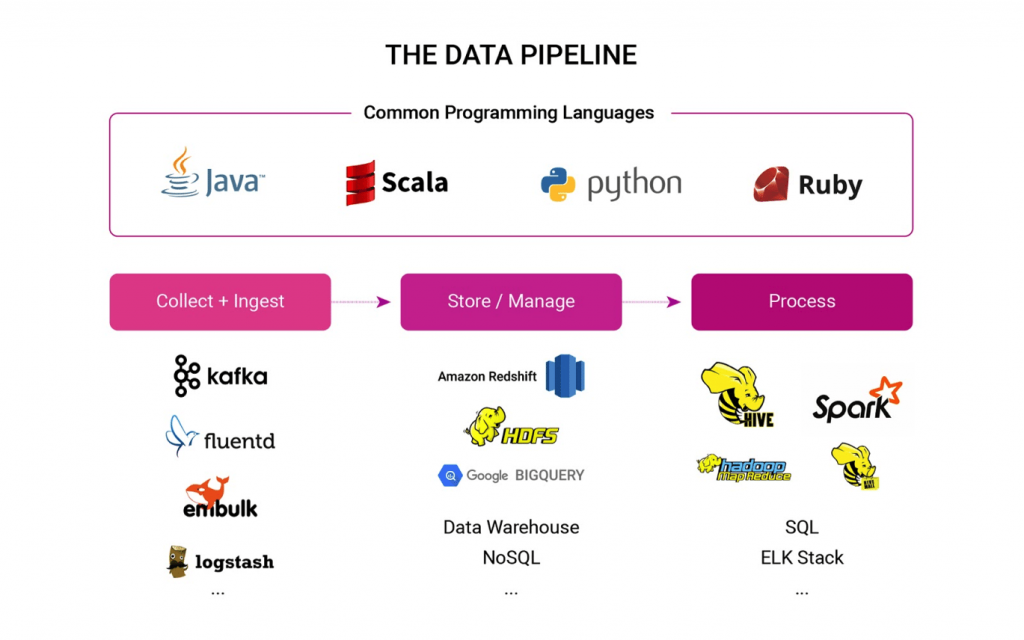
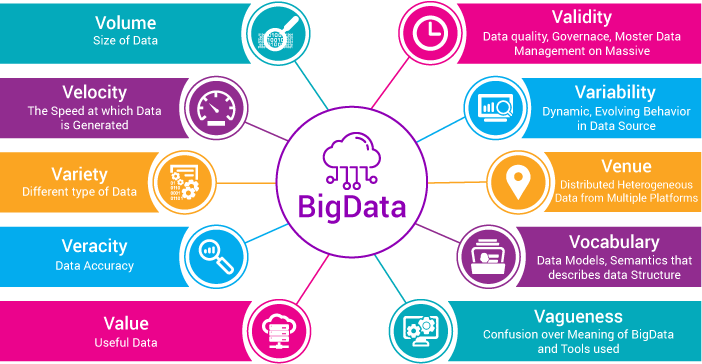
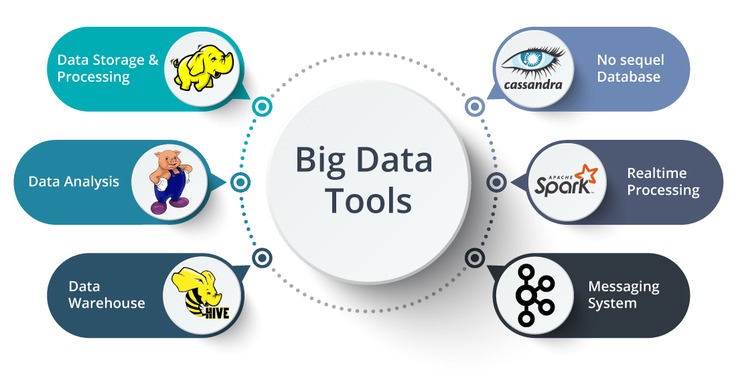
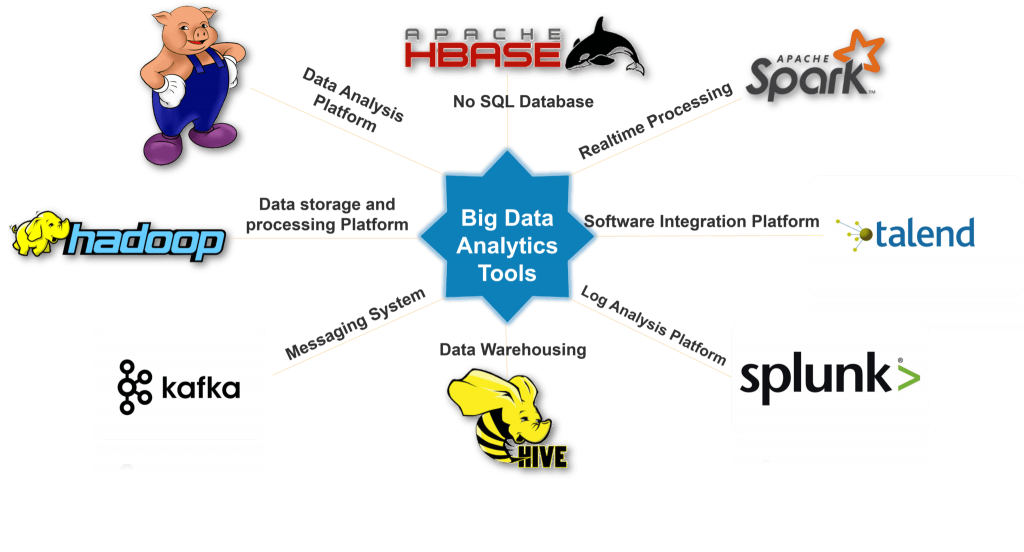
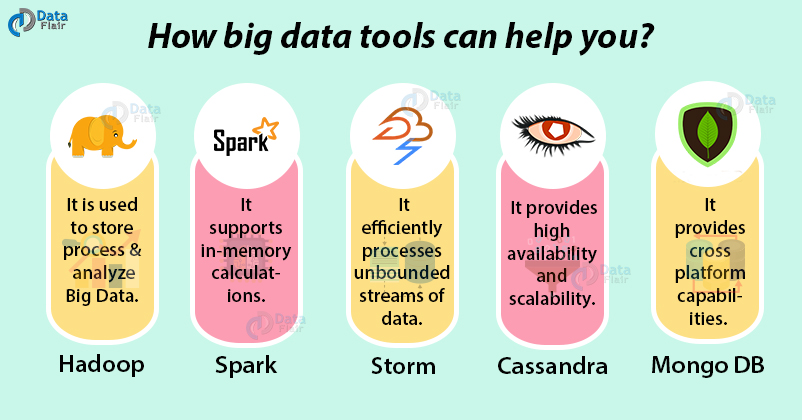
Toos for Collect and Ingest Data in Big data
- Apache Kafka
- FluentD
- Logstash
Toos for Store and Manage Data in Big data
- Amazon Redshift
- HDFS
- NoSQL
- Google BigQuery
Tools for Processing Data for big data
- Apache Spark
- Hadoop
- Apache Hive
- Elastisearch
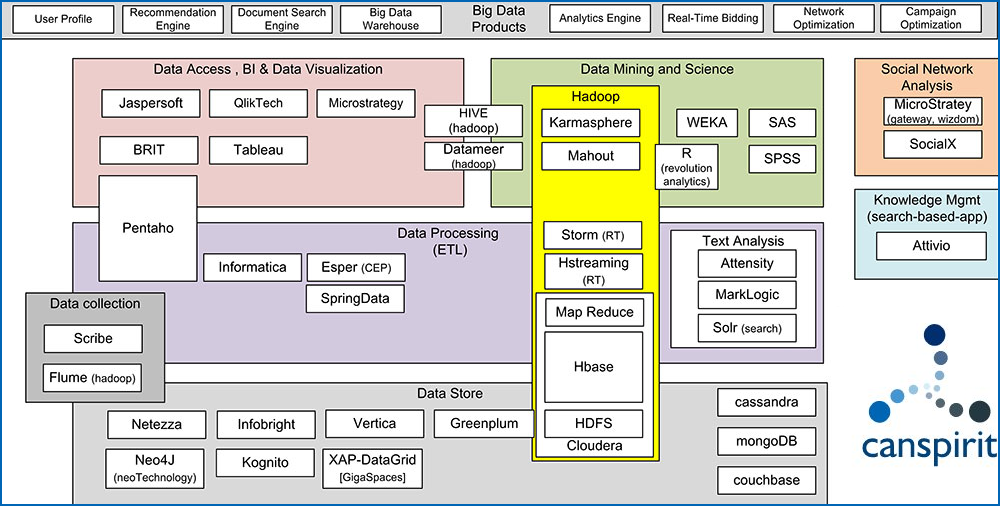
- How to remove sensitive warning from ms office powerpoint - July 14, 2024
- AIOps and DevOps: A Powerful Duo for Modern IT Operations - July 14, 2024
- Leveraging DevOps and AI Together: Benefits and Synergies - July 14, 2024

